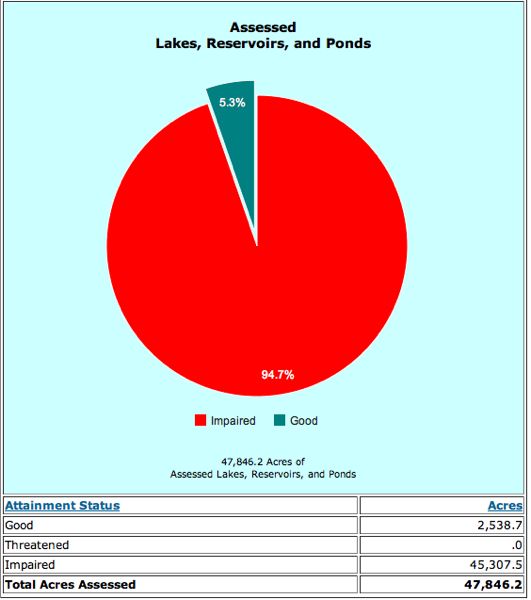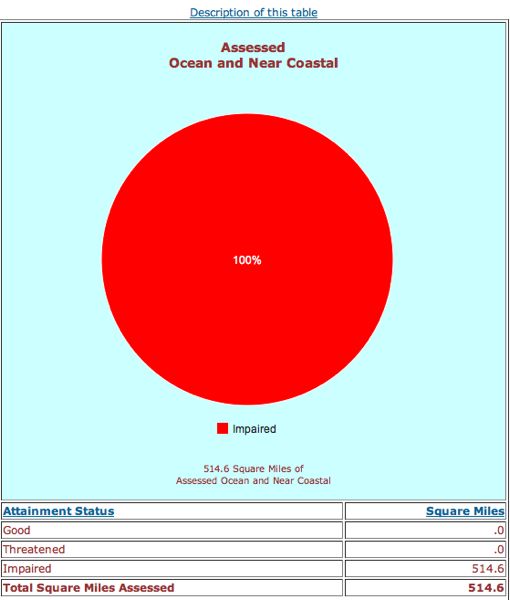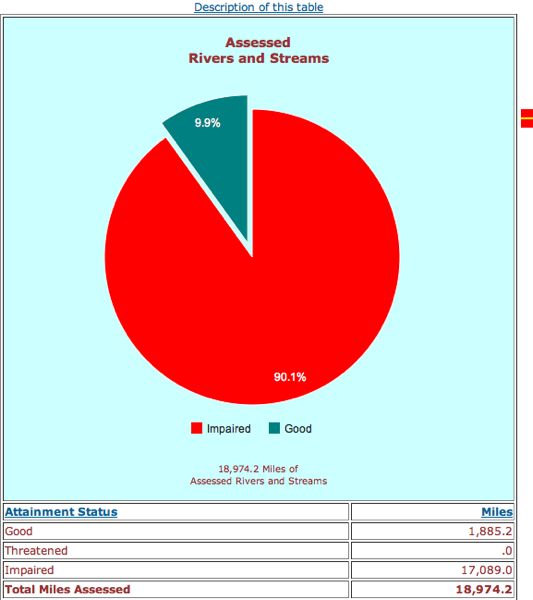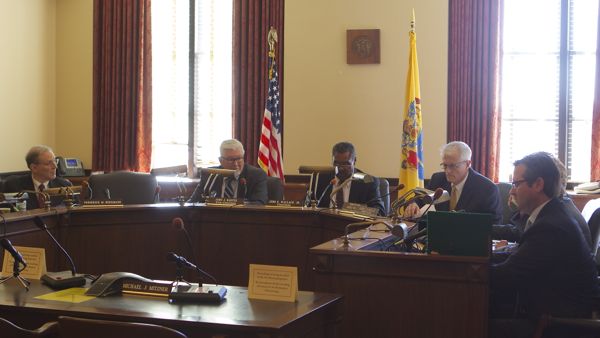On Open Space and Clean Water
A Look At An Amazing Propaganda Campaign
Let’s start with a few basic facts:
- According to US EPA and NJ DEP water quality monitoring data, NJ’s streams, rivers, lakes, bays, and groundwater currently do not meet water quality standards set under the federal Clean Water and Safe Drinking Water Acts to assure that all waters are fishable and swimmable and safe to drink;
- there are a multitude of pollution sources that cause these pollution problems;
- there must be deep reductions in current pollution if NJ is to achieve clean water goals;
- there are a set of State regulatory programs designed to protect and restore water quality by limiting pollution discharge that either are not being aggressively implemented, rolled back, not adequately funded, or not enforced
These water pollution problems, their causes, and the regulatory programs designed to reduce pollution were recently discussed in a NJ Spotlight opinion piece by Dan Van Abs, as well as my critique of that analysis.
With that in mind, consider that the core claim of the Keep It Green Coalition’s support for the opens space funding ballot question recently approved by voters was that open space improves water quality and protects clean water.
Yet with very few exceptions (e.g. NY/NJ Baykeeper, some watershed groups), land trust & conservation member groups of the Keep It Green Coalition do virtually no work – NONE – on the clean water and safe drinking water issues and programs outlined in the NJ Spotlight piece and expanded upon in my critique.
Instead of actually working on clean water issues , KIG spent over $700,000 promoting this pack of lies:
On November 4, 2014 Vote YES on Public Question 2 to ensure dedicated state funds are available to protect New Jersey’s clean drinking water, open spaces, farmland and historic sites, as well as to improve water quality and clean up polluted sites.
Let’s be clear about some basics:
1) Open space preservation is merely the legal change in ownership in land.
A forest owned by NJ Audubon, or the State of NJ , or a developer provides the same ecological and water quality services.
The legal ownership of the land does not alter current conditions; e.g. the groundwater recharge, infiltration of rainwater, pollution runoff, drainage, wetlands characteristics, stream vegetation, or pollution filtration of the land.
I trained in environmental science and regional planning, so I understand the value of open space in PREVENTING POTENTIAL FUTURE NEW SOURCES OF POLLUTION via land development.
But preventing future potential pollution sources does nothing to reduce current pollution and will do nothing to restore water quality and make our waters fishable, swimmable, and safe to drink. Nothing at all.
And with NJ’s willing seller approach to land acquisition, we get the 100 acre parcel preserved across the street from the corporate office park or housing development. So even FUTURE benefits are often wiped out by the failure to plan and regulate on a regional basis.
2) And the lies get worse.
Exactly the opposite of what KIG claims, they are not only not protecting water quality, they are making current problems worse because the KIG ballot question slashed current funding for water resource protection programs that actually protect drinking water, improve water quality, and cleanup polluted sites.
The actual way water pollution is reduced and water quality protected and restored is via a) regulatory standards and permit limits on pollution discharge sources; b) mandates to reduce pollution loadings from current pollution sources; c) mandates to install pollution control technology treatment requirements; d) requirements to cleanup pollution sources like toxic waste sites and underground storage tanks, and e) restoration field work: things like installation of best management practices, construction of CSO controls, stream buffer restoration projects, or retrofit of storm water infrastructure.
Those DEP programs actually limit and reduce current pollution discharged to our waters.
Those DEP programs require water quality monitoring networks to collect data; scientists, engineers, and planners to analyze that data and set water quality standards and permit limits; inspectors to monitor and enforce compliance with standards and permit limits; and experts to design and install field restoration projects.
Those programs and professionals cost money.
But KIG just slashed about $45 million from DEP water resource programs and the funding source that supports the salaries of 266 DEP staffers who actually protect water quality and drinking water.
And all for the change in ownership of land (and fund their own organization’s budgets).
So, let’s recap:
1) currently water quality is poor and programs to protect water quality are being rolled back and defunded;
2) so called environmental groups that do no work on clean water justify spending $100 million of public money on open space on the basis of protecting clean water;
3) the open space program does nothing to protect current water quality; and
4) the open space program diverts funds from programs that actually protect water quality.
Only Orwell could imagine something like that.
[End note: our KIG friends never seem to mention these requirements, which I helped develop at DEP, that impose (at no cost to the taxpayer) protections on about 200,000 acres of the most environmentally sensitive high quality open space there is: riparian corridors. According to DEP:
Category One waters are protected from degradation through the implementation of a 300-foot buffer (on each side of the waterway) known as the Special Water Resource Protection Area in the State’s Stormwater Management rules (N.J.A.C. 7:8). Such waters are also protected through the implementation of the State’s Flood Hazard Control Act Regulations, which require a 300-foot riparian zone immediately adjacent to Category One waters and upstream waters within the same HUC14 sub-watershed. These buffers are often coincident with wetlands that are protected in permanent conservation restrictions through the NJDEP’s permitting program. (@ page5)







